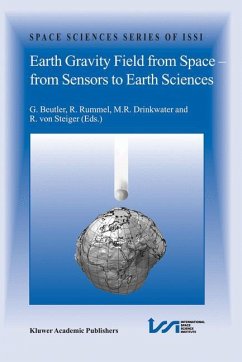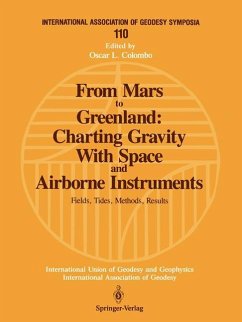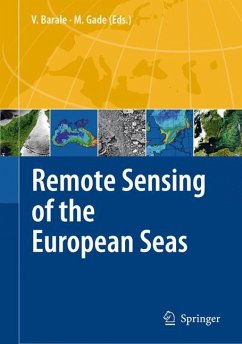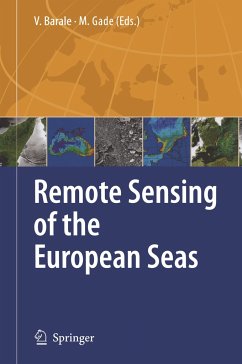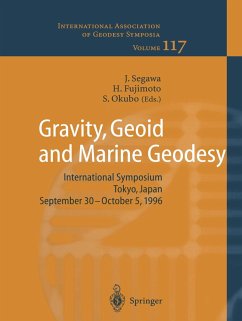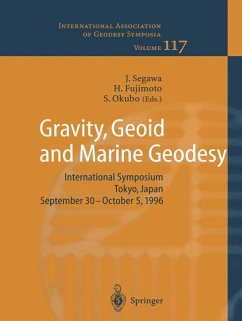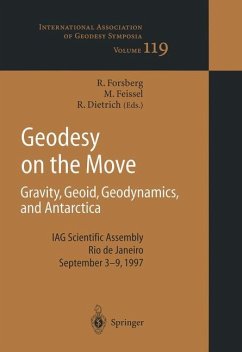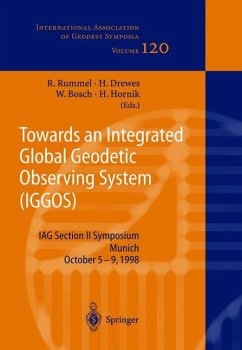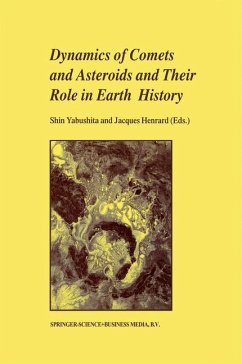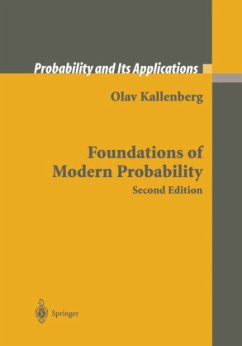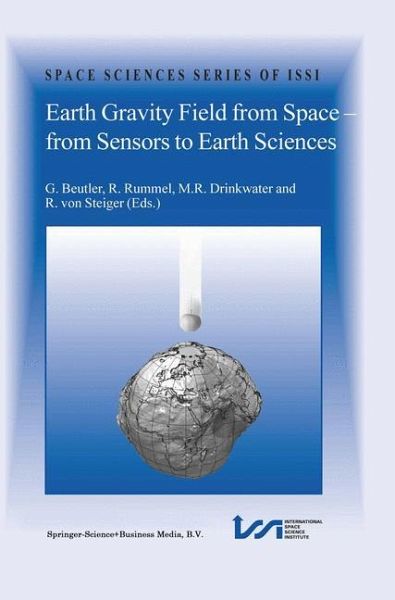
Earth Gravity Field from Space - from Sensors to Earth Sciences
Versandkostenfrei!
Versandfertig in 6-10 Tagen
151,99 €
inkl. MwSt.

PAYBACK Punkte
76 °P sammeln!
This volume in the Space Sciences Series of ISSI is dedicated to the detennination of the Earth's gravity field, which was the topic of a workshop organized by ISSI from 11 to 15 March 2002 in Bern. The aim of the meeting was to gather active researchers from various fields (satellite geodesy, gravity field modelling, solid Earth physics, oceanography, etc.) to assess the exciting new developments that are made possible by space missions currently in orbit or about to be launched. Following some general enquiries with the scientific community concerning the desirability of organising a worksho...
This volume in the Space Sciences Series of ISSI is dedicated to the detennination of the Earth's gravity field, which was the topic of a workshop organized by ISSI from 11 to 15 March 2002 in Bern. The aim of the meeting was to gather active researchers from various fields (satellite geodesy, gravity field modelling, solid Earth physics, oceanography, etc.) to assess the exciting new developments that are made possible by space missions currently in orbit or about to be launched. Following some general enquiries with the scientific community concerning the desirability of organising a workshop on the proposed topic, a group of four con venors (Gerhard Beutler, Univ. of Bern; Mark Drinkwater, ESA-ESTEC, Noord wijk; Reiner Rummel, Techn. Univ. Miinchen; Rudolf von Steiger, ISS I, Bern) for mulated the aims and goals of the workshop, structured the workshop into six sec tions, nominated a list of session chairs (Georges Balmino, GRGS-CNES, Toulouse; Roberto Sabadini, Univ. of Milano, Christian Le Provost, Obs. Midi-Pyrenees, Toulouse; Philip Woodworth, Bidston Observatory, Birkenhead; Miguel Aguirre, ESA-ESTEC, Noordwijk), who in turn set up a programme of introductory talks. The workshop was organized such as to have only plenary sessions with typically half-hour presentations and ample time for discussions. The last day was devoted to conclusions and future objectives.



